Welcome to the March Solidarity Update!
This month, we participated in a series of critical activities and topics that are setting the stage for the field of justice and human rights. We highlight the transitional justice case of the Alaska Summit Massacre, a milestone that represents an important step in the right to peacefully protest as a form of resistance for the people and communities of Guatemala, and across the globe. Additionally, we highlight the beginning of the third hearing of the Genocide of the Maya Ixil on March 25th, a pivotal moment in the fight for justice after a long history of violence and oppression. On March 22nd, we commemorate World Water Day, remembering its importance as a source of life and dignity, and the historical struggle and resistance of the people to defend it against the extractive sector. Don’t miss the webinar “Will democracy prevail in Guatemala?” held on February 14th, where the political challenges for democracy in Guatemala were addressed after the inauguration of President Bernardo Arévalo. In closing, we share the historical and modern day connections between Guatemala and Israel, and its significance for us in the United States.
The strength of our community-based organization and internationalist solidarity are the foundations of a more just and equitable world for everyone.
Cumbre de Alaska case
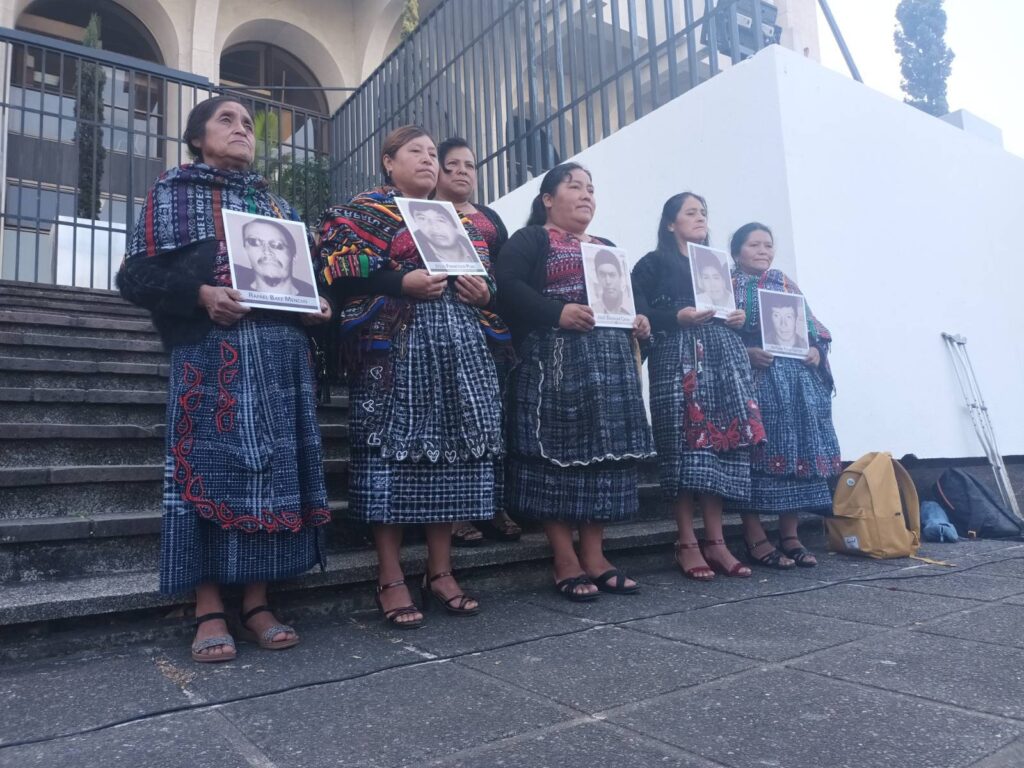
📸 Photo by NISGUA. February 28th, 2024. Human Rights Plaza, Guatemala City. Widows from the case of the Alaska Summit Massacre.
On February 28th, after more than 11 years in search of justice and the right to peacefully protest, the town of Totonicapán received a sentence that consolidates the impunity and immunity of the forces of oppression who massacred six residents, and severely injured 35 residents, of the Alaska Summit Community on October 4th, 2011. The Tribunal B of High Risk Crimes resolved to acquit two of the soldiers, and condemn six of the others, accused of the crimes of extrajudicial executions for the perpetrated massacre.
The widows of the victims, survivors, and community and Ancestral Authorities of the 48 Cantones presented themselves to the sentencing hearing affirming that: “The resolution should leave clear that the abuse, repression, and use of excessive force cannot be applied to a civil population, nor an Indigenous population, in a discretionary or indiscriminate manner by security forces.
This case highlights the importance of holding perpetrators of human rights violations accountable and providing reparations to victims as part of the process of justice, reparation, truth, and memory. It also underscores the importance of transnational unity and solidarity, as leaders from the Ixil and Xinka Peoples attended the hearings and ceremonies, supporting this struggle as well as their own.
Furthermore, from NISGUA and grassroots collectives organized in the United States, we honor the historical struggles and resistances of the Peoples in Guatemala and join from internationalist solidarity to amplify the voices seeking justice, dignity, and accountability in Guatemala, the United States, and the world.
Despite the verdict handed down, the People of Totonicapán will continue to seek justice. The decision represents a setback for human rights defense in Guatemala, but the community persists and remains resilient.
*Maya Ixil genocide case starts on March 25th, 2024 |

📸 Photo by NISGUA. Commemoration Activity of the Ixil Genocide sentence. Nebaj 2023.
Our AJR (Association for Justice and Reconciliation) partners will testify for the third time against Benedicto Lucas García, head of the Guatemalan army between 1978 and 1982, charged with genocide and crimes against humanity.
In the current global context, supporting the third trial will for genocide in Guatemala, is not just a moral imperative; it’s a critical necessity: the atrocities committed during the genocide in Guatemala, which targeted Indigenous communities cannot be overlooked or forgotten. Take action with us!
The Trial was supposed to start in 2022, however, after a series of excusals of several judges and a recusal brought by the plaintiff AJR, the court was not integrated until April 2023. At the same time, during 2023 the defense of the accused Callejas y Callejas required medical studies and examinations to evaluate his mental capacity, studies that concurred in the “MENTAL INABILITY” of the defendant to face trial by common law.
As a consequence, on January 3, 2024, the Court resolved to separate the Trial into two:
1) A common trial open to the public against the accused Manuel Benedicto Lucas García and
2) a trial behind closed doors and without the presence of the accused in order to apply special measures to protect the health of Manuel Antonio Callejas y Callejas.
* Update of March 25th, 2024: Opening to the Oral and Public Debate: Delay Tactics Used in the Ixil Genocide Trial by Benedicto Lucas García’s legal team.
World Water Day
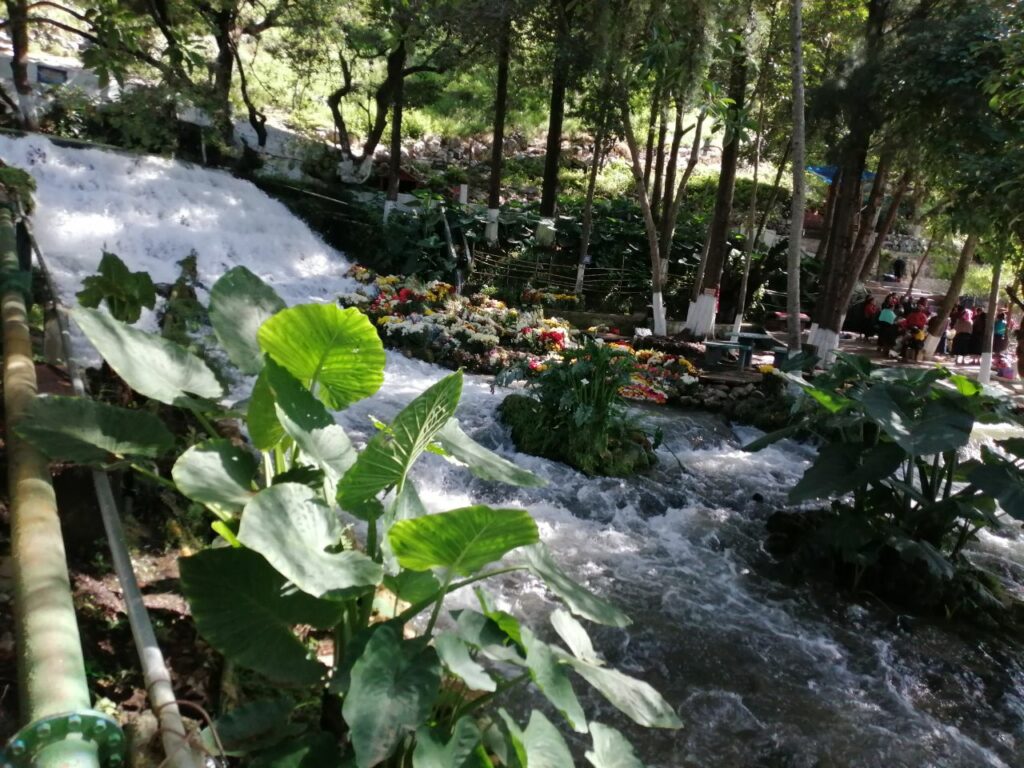
📸 Photograph by: NISGUA. Source of the sacred river San Juan, Aguacatán, Huehuetenango.
On this date we share two examples of how organizations in defense of life and territory have developed collective strategies for the care of this vital liquid. The Departmental Assembly of Huehuetenango (ADH) has been lobbying at the municipal level for a couple of years, which is why they have promoted legislation defending water as indigenous peoples. At the moment, they have achieved the Municipal Water Protection Agreements in four municipalities, but they want to do it for the entire department of Huehuetenango and for all of Guatemala, because they have set their goal for the communities to monitor and be aware in a more tangible way of the compliance of these laws. On the other hand, in the Xinka territory, in relation to the damage caused by the Escobal mine, the resistance against this mine organized to close it, and also formed young people to do water monitoring on the levels of contamination of the rivers near the mine, especially arsenic and take measures to heal the negative impact of extractivism.
In the face of capitalist plundering and looting, the people of Guatemala are organizing to care for and defend Mother Water.
ICYMI! Recording for Webinar:
|
At the webinar, Judge Miguel Ángel Gálvez, who presided over the conviction of ex-president José Efraín Ríos Montt for genocide and ordered the arrest of former president Otto Pérez Molina on corruption charges, discussed the political challenges for democracy in Guatemala after President Bernardo Arévalo’s inauguration on 1/14. Representatives of UUCA’s partners in Guatemala, Michelle Liang of NISGUA, Juan de Dios of ADIVIMA, and Veronica Serrano Tama of the Guatemala Human Rights Commission also spoke about its implications for the people of Guatemala.
“Where There is Struggle, There is Hope” Teach-In |
On March 7th, 2024, at the generous invitation of an interfaith solidarity organization in Southern California, NISGUA spoke on a panel of activists in solidarity with the Palestinian people. You can watch a full recording of the event here (Passcode: $10lKNDt). Below are two excerpts from NISGUA’s remarks that night (slightly edited for clarity).
“Israeli news media in the 80s reported that Rios Montt received extensive help from Israeli military advisers to execute his military coup. Rios Montt himself acknowledged to an ABC reporter that things had gone smoothly “because many of our soldiers were trained by Israelis.” Israel provided extensive military aid to the Guatemalan state as it committed genocide [against the Maya people], for which Rios Montt was convicted on in 2013. While a victory, we don’t need Netanyahu convicted of genocide in 2054! We need the genocide in Gaza to stop now! Solidarity with the people of Guatemala demands solidarity with the people of Palestine.”
“The world’s foundations are shaking, and we [who struggle for liberation] are the shaking ground that cracks those foundations. We are cracking the material and ideological foundations of the United States and Israel, of imperialism and Zionism. With every action we take and every word we speak, we blow a crack. And then another. And another. No action and no word is too small when it’s done in the collective spirit of the generational and global liberation struggles which are repressed but never eliminated. Every action done collectively reverberates beyond our sight. As Ghassan Kanafani, former spokesperson of the Popular Front for the Liberation of Palestine, who was massacred by an Israeli car bomb in 1972, said: “Everything in this world can be robbed and stolen, except one thing: This one thing is the love that emanates from a person towards a solid commitment to a conviction or cause.” With a love that they can never steal, may we honor, salute and join the Palestinian people in their freedom struggle, from every river to every sea! Free Palestine!”

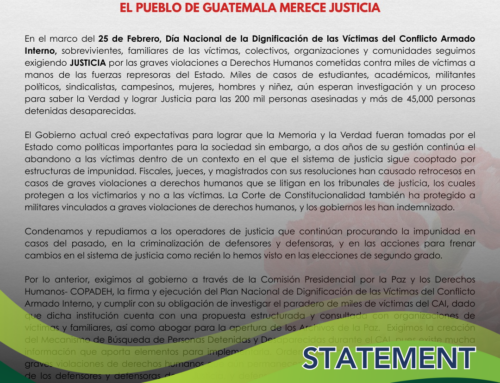

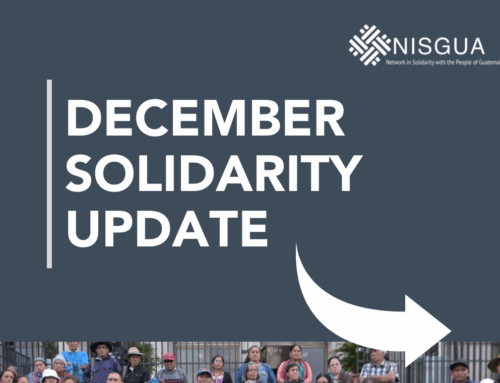
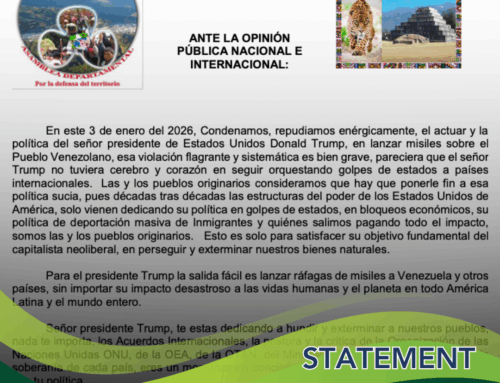
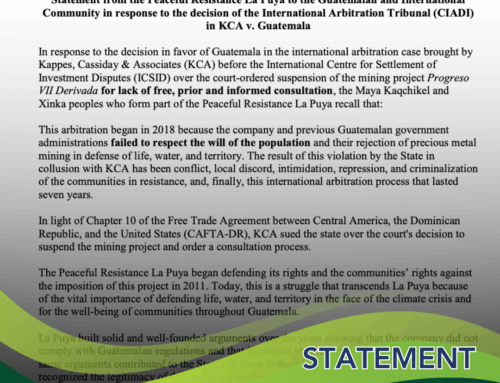
Leave A Comment